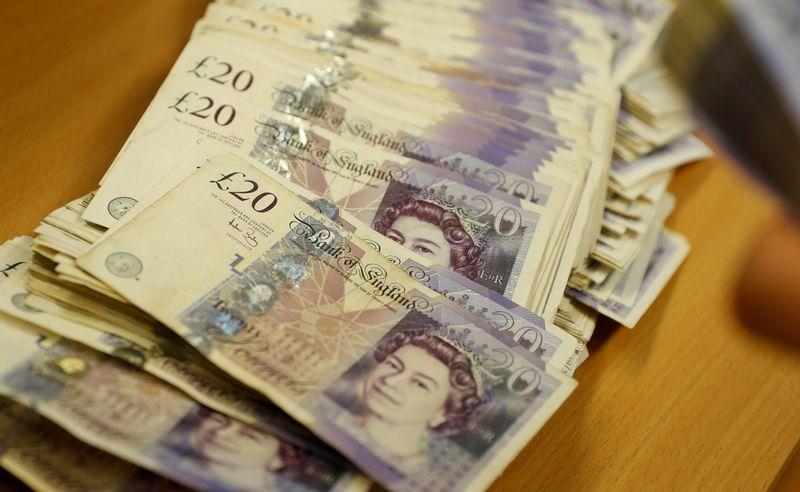LONDON (Reuters) – The pound was among the risk assets hurt by the recovering dollar on Monday, falling below $1.35 in early trading, as Britain’s chief medical adviser warned that the next few weeks of the pandemic will be the worst yet.
Widening U.S. Treasury yields and the expectation of more fiscal stimulus lifted the dollar against its rivals.
Britain will open seven large-scale vaccination centres on Monday as part of the government’s plan to deliver to COVID-19 shots to all vulnerable people by mid-February.
But the next few weeks of the pandemic will be the worst so far in terms of people hospitalised, the government’s chief medical advisor, Chris Whitty, said.
As market participants weigh up the economic impact of the virus against progress on the vaccine front, the possibility that the UK’s central bank will introduce negative interest rates is being priced in for as early as May 2021.
Bank of England policymaker Silvana Tenreyro will give a speech about negative rates at 1400 GMT.
“Although increased fiscal support has weakened the case for a quick rate cut, the UK has still been one of the countries worst affected by the pandemic,” wrote RBC strategists in a note to clients.
“Combined with the negative effects of Brexit, it means we continue to expect that the Bank will ultimately be forced to take rates negative,” they added.
FX analysts at ING said that the pound will have to “brace itself” for headlines about negative rates when Tenreyro speaks.
“GBP will be vulnerable to negative rate talk during lockdowns and EUR/GBP risks 0.91,” they said.
At 0846 GMT, the pound was down 0.4% versus the dollar, at $1.3501, having hit as low as $1.3483 as European markets opened. The last time the pound was below $1.35 was on Dec. 30.
Versus the euro, the pound was down around 0.2%, at 90.36 pence per euro.
Weekly CFTC futures data for the week to Jan. 5 showed that speculators kept a small net bullish position on the pound for the fifth week running
Elsewhere, British minister Rishi Sunak expressed concern that higher interest rates might one day raise the cost of servicing government debt, in comments published on Sunday.
Interest rates in Britain currently stand at a record low 0.1%.
Source: Read Full Article
